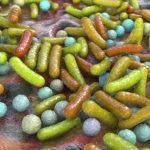By David Blyweiss, M.D., Advanced Natural Wellness
May 23, 2014
- Are you unknowingly carrying this virus?
- 4 ways to increase your odds of beating this infectious disease
- Advanced protection for your liver
Have you ever been tested for hepatitis C?
Until recently, this type of screening hasn’t been on my list of must-have tests for patients. But shocking new data has me testing all of my patients between the ages of 50 and 68 for this virus.
You see, it turns out a rash of Baby Boomers who have never had symptoms are turning up with this virus. This may sound odd. But about 75% of all hepatitis C (HCV) infections are showing up in people who were born between 1946 and 1964. And a large number of them don’t even know they have the virus.
Nobody really knows why this group is the most affected. Some are attributing it to the high rates of drug use back in the 60s and 70s. Others are pointing to tainted blood that may have been used in transfusions prior to 1992.
But there are a lot of other ways people may have acquired the infection.
MD Exposes the Hidden Danger to Your Eyes

When your eyesight starts to fail, it's a real problem. Suddenly you can't go to the grocery store... you can't get to the doctor if you have an emergency... you can't meet your friends for dinner…
Your "regular" doctor doesn't have time to keep up with the latest research. And the same goes for eye doctors. They go to school to learn how to fit you for glasses and contacts, but have no way of preventing the damage and loss of eyesight that threatens your freedom and independence.
Let me show you something that explains a LOT about how your eyes work.
In my FREE Special Report, I'll show you a HUGE, untapped resource for your eyes that safely and naturally restores clear, effortless eyesight.
Click here to get started...
A tattoo or piercing with dirty tools or ink could be the culprit. Healthcare workers are often exposed to infected needles and blood. You can even get HCV if you’ve had sex with someone or shared a razor or toothbrush with someone who’s infected.
However, a lot of folks may never know how or when they became infected.
When you think of HCV, the first thoughts that probably enter your mind are liver damage, cirrhosis and liver cancer. And these are very real threats. This is why it’s so important you get tested.
On the other hand, if you do test positive, there are a number of things you can do to reduce your risk of serious liver damage.
The most important thing anyone diagnosed with hepatitis C can do is take care of their liver. And if you take steps now, it can greatly reduce your risk of having to resort to months of expensive and debilitating treatments that may or may not work for you.
All it takes is a little effort to treat your body right and take measures to protect your liver. Here are four things you can do immediately to beat the odds:
1. Never take any product containing acetaminophen. If your liver is compromised in any way, you should avoid acetaminophen at all costs. Even a small amount of acetaminophen can damage the cells in your liver. Worse, this drug is the leading cause of acute liver failure in the U.S.
2. Cut out the alcohol. It’s easy to think a “nip” every now and then won’t hurt you. But alcohol is quite damaging to the liver. If your liver is even partially compromised, it’s not safe to drink beer, wine or any sort of hard liquor.
Are You Suffering From...
- Love handles and a pot belly
- Romance that isn't what it used to
- Forgetfulness and inattention
- Low (or no) strength and endurance
- A sex drive that's shifted into neutral...or worse
If so...you may have Mature Male Burnout. Click here to discover more about this unique condition and what you can do about it.
3. Don’t smoke. Smoking taxes your liver. Cigarettes contain a large number of toxins and carcinogens. If you have hepatitis C or any other condition that damages the liver, smoking could make things much worse. It can increase scarring and damage, and is also associated with a higher risk of liver cancer.
4. Eat a healthy diet. People with hepatitis C are more likely to develop insulin resistance and diabetes. This is a double-whammy for the liver. Both add to the liver’s fatty load, which leaves the liver vulnerable to scarring and cirrhosis.
Tip: Avoiding high fructose corn syrup and processed foods high in carbohydrates will go a long way to protect your liver. I recommend permanently changing your eating habits to a Mediterranean-style diet. You can load up on all the fruits and veggies you want, whenever you want. Make about 87% of your diet plant-based and 13% meat-based.
There are also several nutrients that can provide advanced protection for your liver…
Milk thistle contains flavonoids that support liver function by raising protective glutathione levels. It might also inhibit HCV infection by hindering entry into liver cells. Take 420–600 mg. of silymarin per day from an herbal extract of milk thistle standardized to 80 percent silymarin content.
Phosphatidylcholine helps to prevent fat from being deposited in the liver. It also works well in combination with silymarin to bolster the function of liver cells. Take 900 mg. a day of this nutritional supplement to improve liver function.
Selenium also appears to be effective in suppressing the hepatitis C virus. This is a mineral that patients with the virus are often deficient in. However, it may help neutralize free radicals that can lead to liver damage. I recommend taking no more than 200 mcg. of selenium daily. As a general rule, that’s about what you’ll find in most multivitamin supplements.
All of these tips can go a long way to allowing for a long and healthy life without ever experiencing any HCV symptoms.
However, I do have a word of caution.
If you’re acutely ill with severe liver damage due to your infection, it’s very important to consider aggressive medical treatment. While I don’t recommend it as a first line of defense, there’s a time and a place for it.
Sources:
C Hézode, et al. “Impact of smoking on histological liver lesions in chronic hepatitis C.” Gut. Jan 2003; 52(1): 126–129.
Chuang SC, et al. “Interaction between cigarette smoking and hepatitis B and C virus infection on the risk of liver cancer: a meta-analysis.” Cancer Epidemiol Biomarkers Prev. 2010 May;19(5):1261-8.
Veldt BJ, et al. “Increased risk of hepatocellular carcinoma among patients with hepatitis C cirrhosis and diabetes mellitus.” Hepatology. 2008 Jun;47(6):1856-62.
Agius L. “High-carbohydrate diets induce hepatic insulin resistance to protect the liver from substrate overload.” Biochem Pharmacol. 2013 Feb 1;85(3):306-12.
Blaising J, et al. “Silibinin inhibits hepatitis C virus entry into hepatocytes by hindering clathrin-dependent trafficking.” Cell Microbiol. 2013 Nov;15(11):1866-82.
Moscarella S, et al. “Therapeutic and antilipoperoxidant effects of silybin-phosphatidylcholine complex in chronic liver disease: preliminary results.” Curr Ther Res 1993:53:98-102.
Khan MS, et al. “The possible role of selenium concentration in hepatitis B and C patients.” Saudi J Gastroenterol. 2012 Mar-Apr;18(2):106-10.






